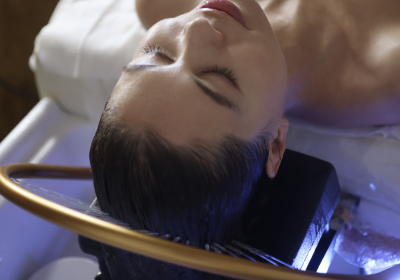A good night's sleep is just as important as regular exercise and a healthy diet. Research shows that poor sleep has immediate negative effects on your hormones, exercise performance and brain function. It can also cause weight gain and increase disease risk in both adults and children.
In contrast, good sleep can help you eat less, exercise better and be healthier.
Over the past few decades, both sleep quality and quantity has declined. In fact, many people regularly get poor sleep. If you want to optimise your health or lose weight, then getting a good night's sleep is one of the most important things you can do.
Here are our top tips to help you sleep well:
1. Don’t eat late in the evening.
Consuming a large meal before bed can lead to poor sleep and hormone disruption. However, certain meals and snacks a few hours before bed may help.
If you are feeling a little peckish later in the evening, you could try snacking on yogurt, nuts, cherries, or bananas; all foods proven to aid a restful night's sleep.
A great sleep aid to have before bed is Ayurvedic Golden Milk with Ashwagandha:
INGREDIENTS
1 cup unsweetened non-dairy milk
1 tsp ashwagandha powder
1/2 tsp cinnamon powder
1 tsp turmeric powder
1 (1/2-inch) piece of organic ginger unpeeled, thinly sliced
Pinch of black pepper (increases bioavailability, turmeric is also a great option)
PREPARATION
Whisk the milk, cinnamon, turmeric, ginger, pepper and ashwagandha in a small saucepan; bring to a low boil. Reduce heat and simmer for about 5 minutes.
Tip: The best non-dairy milk for frothing is Oatly Oat Drink Barista Edition
2. Avoid consuming stimulants in the evening.
It comes as no surprise that caffeine (a stimulant) and alcohol both disrupt sleep. While alcohol may make you drowsy and induce sleep initially, it disrupts your sleep in the latter part of the night – preventing you from getting essential amounts of REM.
3. Exercise during the day.
Strenuous exercise should be avoided at night, giving yourself at least 3 hours to recover before bed.
However, as exercise does improve your overall health, it can have a positive effect on your sleep and can help to physically tire your body.
4. Darken your room.
The absence of light sends a critical signal to the body that it is time to rest. Light exposure at the wrong times alters the body's internal "sleep clock"—the biological mechanism that regulates sleep-wake cycles—in ways that interfere with both the quantity and quality of sleep.
5. Reduce blue light exposure.
Turn off your iPad or other electronic devices at least an hour before bedtime. The blue light emitted from electronic devices suppresses our natural production of melatonin. So even if we know we are tired and need to go to sleep, our brain is getting the opposite message.
6. Choose your bedtime wisely.
When the sun goes down your body begins to actively produce melatonin, usually this occurs around 9pm. Ideally, you want to be going to bed when you’ve reached peak melatonin production, so if for example you’re going to bed after 2am, you will have missed the peak which will affect the quality of your sleep.
7. Establish a regular relaxing bedtime routine.
A regular nightly routine helps the body recognise that it is bedtime. This could include taking a warm relaxing bath with essential oils or Epsom salt, reading a book, meditating, listening to reiki music or practicing breathing exercises.
8. Optimise your sleeping environment.
Mattress and pillows should be comfortable and the temperature on the cool side – between 16C and 19C degrees – for optimal sleep. Consider using blackout curtains, eye shades, ear plugs, "white noise" machines, humidifiers, fans and other devices that can make the bedroom more relaxing.
9. Improve breathing.
Cleanse your nose with a saline spray to get rid of mucus before going to bed. The quality of your breathing is important for restful uninterrupted sleep.
10. Address your morning routine.
To energise and invigorate the body in the morning, eat breakfast at least 30 minutes after waking. Aim to schedule in some morning sunshine, pairing it with your daily exercise if possible. This will help wake you up, energising you for the day, and make you more tired by bedtime.
11. Keep a diary.
Factors adversely affecting sleep and melatonin production are age, shift work, alcohol consumption, evening exercise, caffeine and some medicines. However, as we are all individuals, these factors will affect us to varying degrees. Keeping a diary documenting diet, exercise and stress levels can help you figure out which factors are making your sleep better or worse.
12. Get help when you need it.
Unfortunately, it is possible that you’ll implement all these tips, follow them dutifully, and still not experience improved sleep. If this is the case, you may have a sleep disorder or another health issue that should be investigated by a health professional.
Tags: Sleep Hygiene | Author: Jenya Di Pierro, Herbalist


